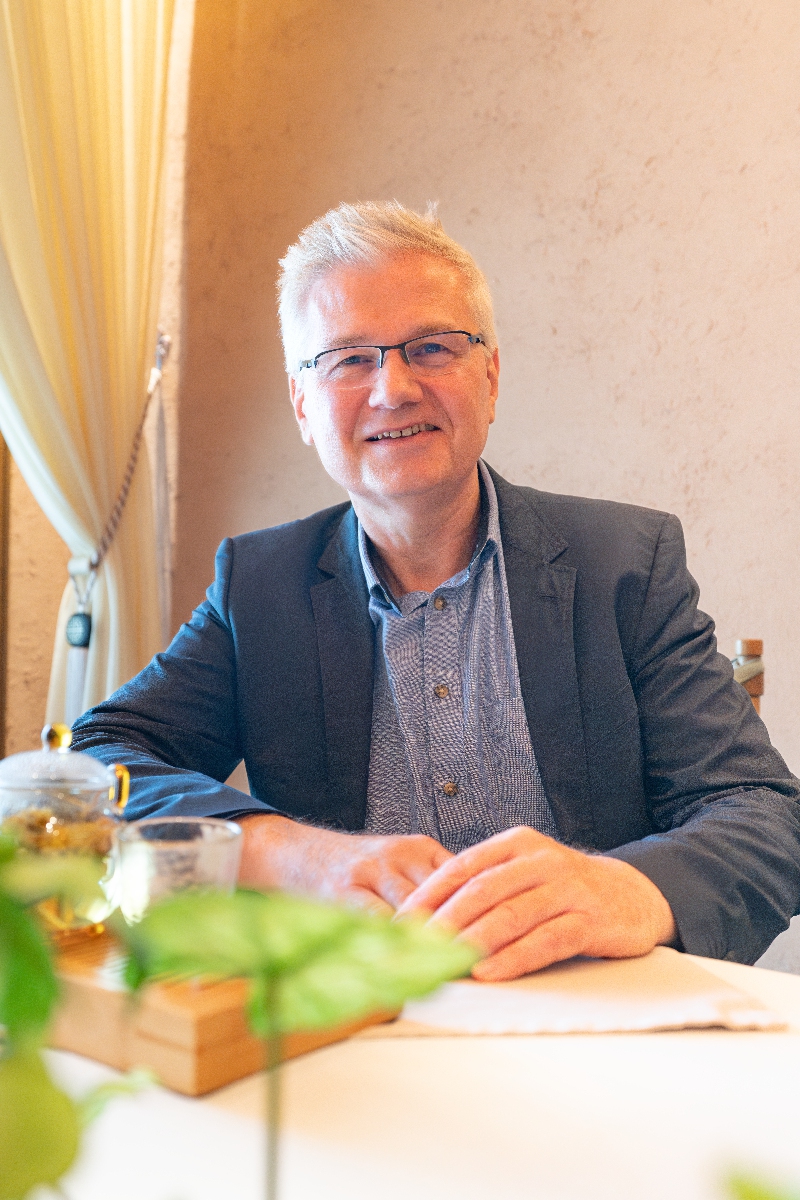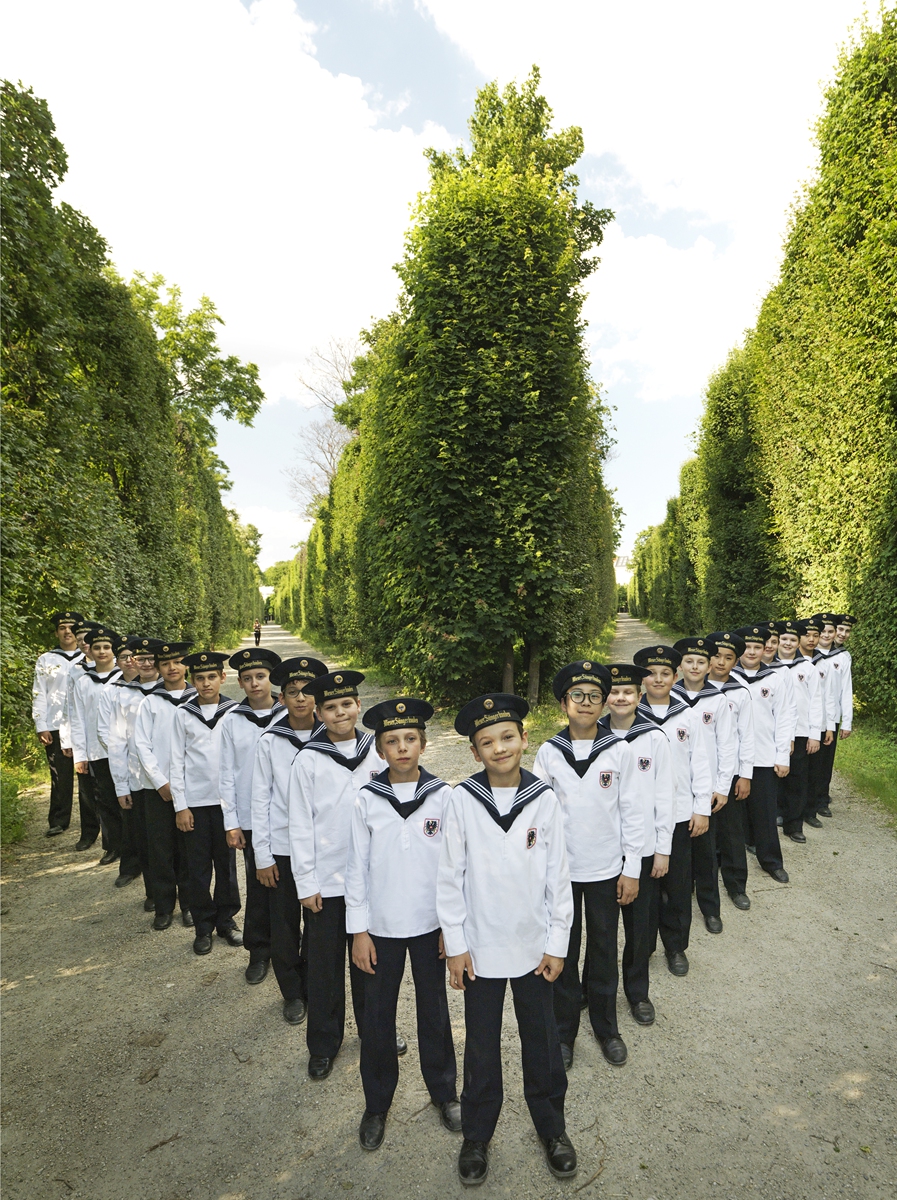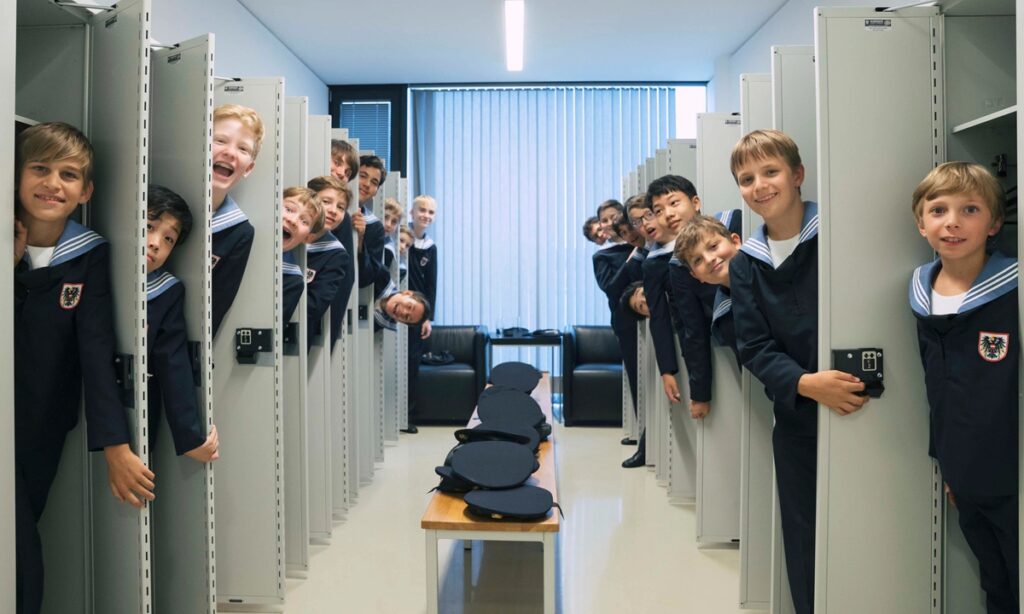Vienna Boys’ Choir proud to admit young Chinese members
With their iconic sailor suits, lively expressions and melodious voices, the young singers of the Austrian Vienna Boys’ Choir have returned to the Chinese stage after a three-year hiatus.
Following a successful debut performance at Beijing’s National Centre for the Performing Arts, Erich Arthold, the president of the choir, sat down with the Global Times on Wednesday, to talk about the illustrious 525-year history and unique style of the Vienna Boys’ Choir, and the insights into the choir’s connections to China and its practical plans to share experiences in Chinese music education.
“Chinese culture is both ancient and significant. It’s crucial for young boys to explore the world at their age, gain diverse experiences, and acquire knowledge about other cultures,” Arthold told the Global Times, noting that the choir is proud to be regarded as a “cultural ambassador” for Austria, which “places a heavy responsibility on us to engage in cross-cultural exchanges.”
Old but young
Founded in 1498, the Vienna Boys’ Choir is one of the world’s oldest and most esteemed boys’ choirs. With its rich 525-year history, the choir is considered a musical treasure from Vienna among other prominent institutions such as the Vienna Philharmonic, hailed as an “Austria’s national treasure.”
This ancient choir has nurtured many great music masters, such as Joseph Haydn and Franz Schubert, and has been an essential partner for legendary conductors like Herbert von Karajan, Leonard Bernstein, Georg Solti, and Claudio Abbado. In 2017, the Education and Choral Tradition of the Vienna Boys’ Choir was listed as a UNESCO World Intangible Cultural Heritage.
The Austrian Vienna Boys’ Choir is comprised of four choirs, each consisting of boys aged 10 to 14. These four choirs are named after Austrian composers Mozart, Bruckner, Haydn, and Schubert, respectively. Every year, these four choirs take turns touring around the world, performing more than 300 concerts globally.
This year, it is the Bruckner Choir’s turn to tour China.

Erich Arthold Photo: Courtesy of Chen Hui
During their 2023 tour in China, the choir will perform in almost 20 cities, including Beijing, Hangzhou, Shanghai, Guangzhou, Hong Kong and Taipei. In addition to classic pieces such as “Eine kleine Nachtmusik,” “The Magic Flute,” and “Tritsch-Tratsch Polka,” the choir will also sing folk songs from countries like Turkey, Ukraine, and New Zealand, as well as specially prepared Chinese songs for the audience, including “The Moon Represents My Heart” and “High Green Mountains.”
Interestingly, Arthold himself was a member of the choir when he was young, performing worldwide. “It was in the mid-1970s, a time without the internet and Skype; people communicated through letters. For me, it was a unique experience, allowing me to appreciate and learn from different cultures. Travel also helped me grow,” he fondly reminisced.
Despite its long history, the Vienna Boys’ Choir has always been dedicated to preserving tradition while fostering innovation. According to Arthold, in recent years, the choir has been committed to establishing a girls’ choir consisting of girls aged 10-14.
The Vienna Boys’ Choir recently held a New Year’s concert for girls, signaling its commitment to the education and development of girls in the field of music. The choir will continue to provide more opportunities to promote girls’ development in the music industry in the coming years.
Deep connection with China
This ancient yet youthful choir shares a special connection with China. In the 20 years between 1999 and 2019, the choir held consecutively performances in China for 20 years, building a solid bridge for cultural exchange and friendship between China and Austria.
Chinese audiences warmly welcomed the choir, garnering them a dedicated fan base in China. At the performance, reporters even encountered choir enthusiasts who had traveled from South China’s Guangdong Province to follow the choir’s multiple shows in the Beijing-Tianjin-Hebei region.

Vienna Boys’ Choir Photo: Courtesy of Vienna Boys’ Choir
Returning to China after a three-year break, Arthold could not contain his excitement. “For us, China’s culture is ancient and important, and Chinese audiences are enthusiastic and open-minded,” he remarked.
The long-term collaboration between the Vienna Boys’ Choir and China has not only promoted the dissemination and popularization of classical music in China but also provided valuable experience and inspiration for Chinese music education and the development of boys’ choirs.
Arthold mentioned that the choir now has four friendly choirs in China, known as the Choirs of Friends of Vienna Boys’ Choir, located in Beijing, Shanghai, Chengdu, and Guangzhou. Members from these four choirs and the Vienna Boys’ Choir visit each other for performances, deepening the friendship between the two nations’ choirs and providing more opportunities for young Chinese musicians to connect with the international music scene.
In recent years, two outstanding young singers from the Chinese mainland have joined the Vienna Boys’ Choir. However, Arthold admitted that these children from outside Austria have put in an extraordinary amount of effort. They not only need to excel in music but also learn the German language and embrace a foreign culture in a relatively short period of time. For parents, this is a decision that requires careful consideration.
Today, more and more Chinese parents recognize the importance of early music education and begin to seek opportunities for their children to watch and listen to top-notch artistic performances. However, there have been occasional news reports about “disruptive children” at concerts, sparking discussions about whether young children should be allowed into theaters.
Regarding this issue, Arthold mentioned that his choir is not troubled by it. On the contrary, he believes that cultivating future audiences is essential, and “the earlier, the better for children.” By exposing children to the diversity of art, parents could let children make their own choices based on their preferences.
During the first performance at the National Grand Theater, Arthold also noticed the presence of many young children in Beijing. “Being able to perform for children of the same age and even younger is also attractive to our choir members, and this is something we will continue to do in the future.”
(Global Times)




